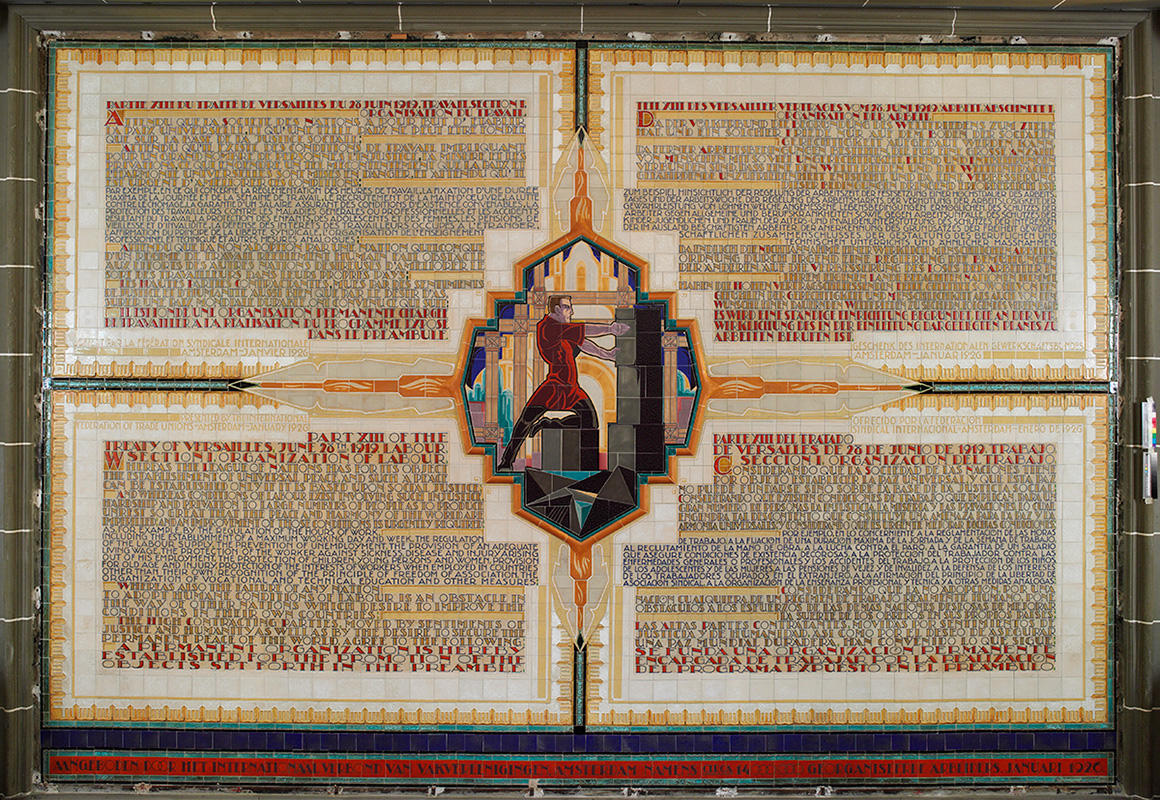
ILO agrees ‘historic’ treaty on workplace harassment

The International Labour Organization (ILO) has adopted a global treaty against violence and harassment in the workplace. It was described as historic by the Swiss ambassador to the ILO Jean-Jacques Elmiger, who chaired the centenary conference in Geneva.
The treaty External linkwas adopted on Friday after a vote by tripartite delegates from the 187 member states following two intense weeks of discussions in Geneva at the 100-year-old UN organisationExternal link.
Representatives of states, employer groups and workers hugged each other ahead of the vote, as a sign of their commitment to the new instrument.
The conventionExternal link, which will be binding only to those states that ratify it, has taken over two years to finalise and negotiate. It applies to violence and harassment in relation to the world of work, including in public and private spaces where they serve as a workplace, but also during journeys between home and the workplace. It covers public- and private-sector employment, as well as formal and informal work.
+ Read more about the ILO centenary conference
The text recognises that violence and harassment disproportionately affect women and girls but excludes references to the vulnerability of LGBTI (lesbian, gay, bisexual, transgender and intersex) people, which activists had sought.

More
Has the global labour organisation advanced workers’ rights?
States that ratify the treaty must adopt awareness-raising policies and legislation to stop violence and harassment in the workplace and establish monitoring mechanisms and sanctions.
‘Strong signal’
The Swiss Federation of Trade UnionsExternal link welcomed the new treaty ahead of Friday’s vote.
“In a time marked by the MeToo movement, the Women’s Strike [in Switzerland] and huge mobilisations around the world in support of women’s rights, the ILO is sending a strong signal in this year of the centenary of its existence,” it said in a statement.
“The negotiations lasted more than two years and were difficult. The ILO Normative Commission, composed of more than 500 representatives of governments as well as trade unions and employers’ organisations, had the complicated task of striking a balance between a detailed draft convention, which was difficult to ratify, and a more generic text, but with less force to deal with human rights violations.”
The union urged the Swiss Federal Council (executive body) to ratify the new convention “promptly” and “without reservation”.
Another highlight of the ILO conference was the adoption of a “Centenary DeclarationExternal link“, a non-binding statement that sets out priorities for the agency in the future in the face of challenges like climate change and new technologies.
The declaration urges states to invest more in lifelong learning, to push for a guaranteed social protection and a universal labour guarantee that enshrines an adequate living wage, as well as gender equality and better safety and health at work.
The ILO held its annual conference on June 10-21External link on the occasion of the agency’s 100th anniversary. The historic Geneva gathering, this year presided over by Switzerland, has been addressing future challenges in the world of work and the role of the ILOExternal link in the years ahead.
The ILO director-general and Swiss Interior Minister Alain Berset opened the conference, which was attended by 5,800 delegates and 44 heads of state and government, including French and Italian Presidents Emmanuel Macron and Sergio Mattarella, and German Chancellor Angela Merkel. United Nations Secretary-General Antonio Guterres gave a closing speech on June 21.

In compliance with the JTI standards
More: SWI swissinfo.ch certified by the Journalism Trust Initiative





























You can find an overview of ongoing debates with our journalists here . Please join us!
If you want to start a conversation about a topic raised in this article or want to report factual errors, email us at english@swissinfo.ch.